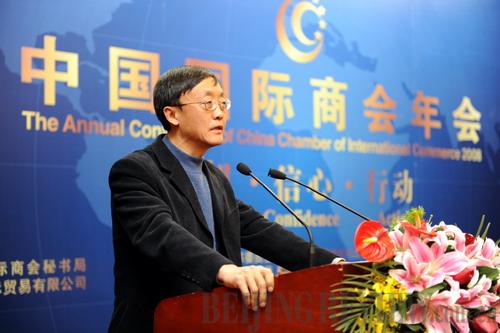|
 |
|
Zhang Liqun, researcher at the Development Research Center under the State Council |
The exchange rate of the renminbi was hotly debated in 2010. "The renminbi exchange rate cannot continue to appreciate so quickly in such a short period of time," said Zhang Liqun, Zhang Liqun, researcher at the Development Research Center under the State Council.
The renminbi exchange rate is a huge issue which touches on many aspects of the world's economy. As is stated by Chinese Premier Wen Jiabao said at the sixth China-Europe Business Summit in Brussels in October that "the world will by no means benefit from an appreciation of the RMB by 20 percent to 40 percent, because it will damage the Chinese economy, and the Chinese economy contributed about 50 percent of the global economic growth in 2009."
Exchange rate reforms in China implemented since 2005 has allowed the Chinese economy to remain stable while also improving the recovery rate for the global economy. "[This] shows that China's exchange rate reforms have been moving in the right direction," said Zhang. Zhang believed that accelerating transformation of economic development mode is the final solution to counter stress from RMB appreciation and tackle the problem of unbalanced international payment.
At the end of 2010, the Central Government made further adjustments to its monetary policy, making it slightly more prudent in nature. "This adjustment was an effective measure for reining in excess liquidity and inflationary expectation, and would provide a stable monetary environment for economic development," said Zhang. | 